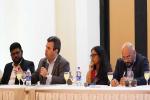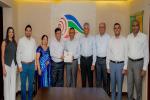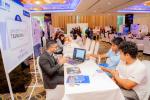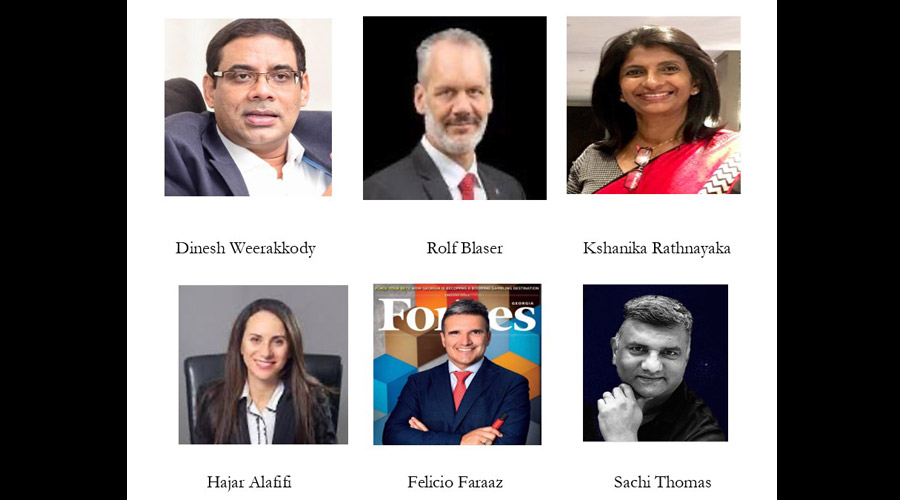Moderated by Dinesh Weerakkody-Vice Chairman of SLID, the panel consisted of experienced business leaders Hajar Alafifi-Chairperson, Unilever Sri Lanka, Kshanika Ratnayaka-CEO, Great Place to Work, and Sachi Thomas-Director PT Nestle & PT Wyeth Nutrition Indonesia and former CEO GSK (Consumer) Sri Lanka.
Session chair Rolf Blaser – CEO of A Baur & Co introduced Felicio Faraaz-Former CEO of British American Tobacco in Sri Lanka Caucasus, the Caribbean, and Central America.
Delivering his keynote address, Felicio Faraaz said that while hard skills are sufficient for managing in stable conditions both hard and soft skills are essential to managing in turbulent and crisis situations such as during the pandemic adding that companies that invested in training the managers, CEOs, and leaders in soft skills to face these turbulent times had a competitive advantage in successfully facing the pandemic.
“It is important to strike the right balance, and one needs to have good interpersonal skills and emotional intelligence, and leaders need to keep calm in turbulent times.
Leaders must guide the organization to succeed in an environment that can change overnight”.
He also said that the VUCA (Volatile, Uncertain, Complex, Ambiguous) world changed to a BANI (Brittle, Anxious, Non-Linear, Incomprehensible) world with the onset of the pandemic, anxiety, or anxiousness made the biggest difference.
“The amount of burnout and stress occurring in the world is tremendous, and we need to address this situation.
This should be the main focus of all CEOs because the Great Resignation that the US is facing may have to be faced elsewhere.
As CEOs, leaders of organizations, we need to walk the talk, be role models, display and show the importance of empathy to face crises and to lead stronger”.
In response to a request of the moderator on his thoughts of the keynote address, Rolf Blaser said “mindfulness, as elaborated by the keynote speaker, in effect translates to taking a step back, and listening to your body, and in the business environment, listening to your teams and keeping the spirit high.
Distance and remote working are lacking personal interaction, emotions that haven’t been the same since the onset of the pandemic.
Mindfulness could be the bridge to the new world to bring back the team spirit and emotions”.
Responding to the moderator’s question on the 3 things that kept you awake during the pandemic, Sashi Thomas said “the safety of the employees – to account for each and every employee, knowing their status, where they are, are they being provided with the right kind of support that is needed, how to ensure business continuity, and the safety of the community that we work with are also safe and secure”.
Hajar Alafifi sharing her thoughts said that the physical and psychological safety of the employees was the topmost concern with domestic abuse, stress, and depression-related issues affecting the employees.
The 2nd concern was how to create and maintain balance, and create challenging work plans so that people still get promoted and still look at their career as something which is progressing.
“Culture is the 3rd factor that I work on a lot to create a high-performance culture that is creative and be able to think out of the box”.
Kshanika Ratnayaka said that the well-being of her small but young and diversified team was her primary concern whose needs had to be addressed in different and unique ways.
“It was about staying connected to these young people who needed to be talked to, communicated, and directed in different styles and approaches” and said that the other major concern was the business continuity as, at the end of the day they were building great places to work.
The work that we do became very relevant to our customers and society.
As such, it was important to ensure that our employees and teams were agile and were able to adapt mentally, and physically safe and available to be able to conduct the kind of work that we needed to do to reach out to our clients and ensure that they were able to create that environment for their employees as well”.






















